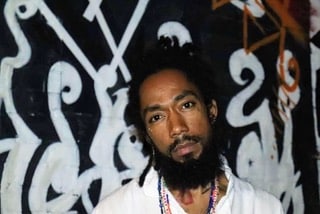Youth Voices Rising Writing Contest 2023 — First Place, Essay

I was introduced to foster care three days after my 13th birthday. Up until then, I lived with different relatives whenever it became too unstable to live with my mother and siblings — or whenever my mother decided she didn’t want me around. For me, my experience as a foster youth was a combination of good and bad. I lived with my first foster family the longest — two and half years. I was the oldest of my mother’s children. But in this foster home, I was the second youngest, and that made life vastly different. Early on in foster care, I learned to embrace my foster parent as a real parent because I never knew when I would live with my mother again. Even though I was in touch with some family, I wasn’t a child who went on home visits, so I spent a lot of time with my first foster family. There were even discussions of adoption at one point, but that all ended when someone called in an anonymous report of child abuse. They saw I had bruises on my arms, neck, and face. I had gotten into a fight with my foster mom and sibling. When the police arrived and saw bruises on my arms, neck, and face, I was immediately removed from the home. That was the beginning of my journey of bouncing between foster homes and group homes.
While in foster care, I gained access to resources I never had, such as weekly and monthly allowances and clothing allowances. Another valued resource I gained access to was therapy and counseling. For the first time, I had someplace to talk through my emotions. I guess these were some of the few positive things I had to look forward to, even though I was being moved every few months. I quickly learned that some resource parents cared more about the “resources” they gained from fostering and not the resources provided to foster youth. In one situation, a resource parent coerced me into embellishing the details of my mental health during therapy sessions to convince my psychiatrist to prescribe psychotropic medication, which would increase the monthly check she received for me. In exchange, she would give me a $300 monthly allowance, but of course, this arrangement was short-lived. I noticed that whenever a foster parent was motivated by money, my time with them was always limited.
By 16, I was made a ward of the state and had lived with nearly 20 foster families and group homes. Honestly, the only positive influences around me were teachers, counselors, therapists, and group home staff. I was able to stay on the right track, for the most part, with the help of these influences. These were the people who held me accountable for my decisions, made me contemplate what I wanted out of life, and introduced me to enriching activities like playing chess, reading, and working out — things that I still find beneficial to this day. Being in foster care afforded me the opportunities to go to professional sports games from MLB to WNBA, experiences that I will always remember and hold near and dear to my heart. During those moments, I was proud to be a foster youth because I knew that the chances of me experiencing that outside of foster care most likely wouldn’t have happened.
Ultimately, my struggles with the fear of abandonment lead me to make decisions that landed me in a juvenile detention facility. I was a troubled teen who ran away often, ditched school, compromised placement opportunities, and eventually got involved in a street gang. After my second stint in juvenile hall, I was fortunate enough to be accepted into a group home in a good neighborhood. I was able to attend a continuation school where I was able to make up any credits I needed to graduate. Upon graduating, I attended a community college and took general education courses while I decided on a major. At 18, I was placed in an Independent Living Program, which is a program that pays 75% of the rent of emancipated foster youth until they are 25, as long as they maintain a job or remain in school. Programs like this helped me to get my first car and taught me a sense of responsibility and life skills.
Although most people would say my upbringing was unorthodox, these experiences shaped me into the man I am today — the man I was meant to become. We all experience the highs and lows of life, adversity, and trauma. Ultimately, we are faced with a constant decision of how we will allow these things to mold us. It’s up to the individual to decide whether they will be a victor or a victim of circumstances, including the circumstances that cultivate a foster youth.





